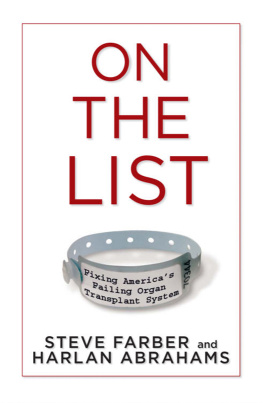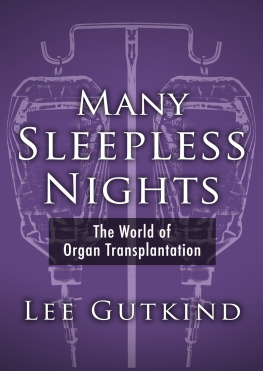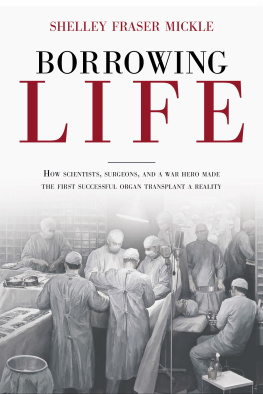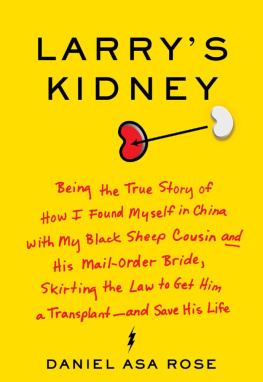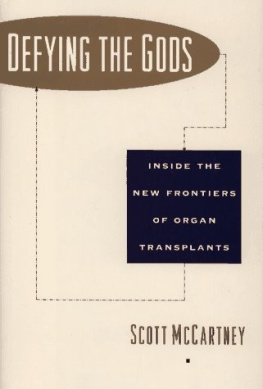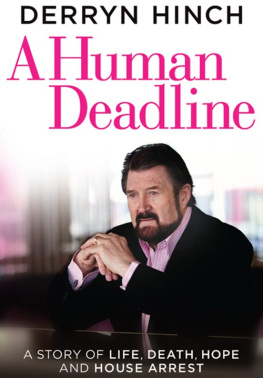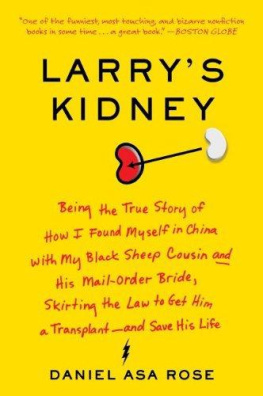M y phones started ringing earlier than usual that morning. It was nearly May 2007 and I was used to phones ringing early in those days. My clients paid well, as always, and in return they expected constant access to me. I was also working hard to bring the Democratic National Convention to Denver in August 2008. My sons lived in New York, 2 hours ahead. People called early. But never that early.
Hello, I answered, no doubt sounding cranky. I blinked at the digital clock on my nightstand.
Have you heard? Have you heard! demanded a voice both foggy and familiar.
Instant relief: It wasnt one of my sons. No family emergencies.
Heard what?
The voice spoke only a few short sentences. But, second by second, my jaw dropped lower and lower and my mouth sagged farther open. I hung up without even saying good-bye.
My wife, Cindy, turned away from me, muttering over the interruption. Whats wrong? she slurred, still mostly asleep.
Nothing, I said. Then I got out of bed, put on my robe, and rushed downstairs to my home office to boot up my computer. I read every English account of the event that had awakened me so early that morning. The accounts were not entirely consistent, but they agreed on enough details to let my imagination fill in the rest.

April 27, 2007: On a winding back street on the Asian side of Istanbul, a small medical clinic hides behind the crumbling faade of a tenement. There must be at least two operating theaters, not state-of-the-art, perhaps, but adequate. Recovery areas for at least eight people occupy the second floor. There are hospital rooms, nurses stations, all the necessary components. The place is neat, tidy, and scrubbed antiseptically clean.
Today a team of roughly 15 has just completed two kidney transplants behind the crumbing walls. In one, an Israeli Arab has donated to a South African in his sixties. In the other, a second Israeli Arab has donated to an Israeli Jew. The two transplants were performed nearly simultaneously by a Turkish surgeon assisted by Zaki Shapira, MD, the famous Israeli organ outlaw. Dr. Shapira, a pioneer in organ transplantation, often had been accused of brokering the illegal sale of organs, and his clinic was operating in contempt of a shutdown order issued a month before by a Turkish court for lacking a license to perform organ transplants. At 71, Dr. Shapira was too old to perform the illicit surgeries himself. But he was always right there in the operating theater, supervising in his green surgical scrubs and his purple knit cap.
The two donors and the two recipients are transferred to the recovery ward on the second floor of the little clinic. They are starting to come out of their surgical comas.
Two bursts of gunfire hasten the process.
The gunfire echoes through the hallways and up the stairs. It sounds like its coming from the entryway to the clinic, where four gunmen have burst onto the scene. One of the transplant patientslets call him Number Onehears it all too clearly, while two others swoon in delirium and the fourth languishes under anesthesia.
The bursts of gunfire are rapid: rat-tat-tat. There must be at least two semiautomatics, perhaps a Kalashnikov, perhaps an Uzi. And handguns, maybe a Stechkin or Makarov, maybe a rusty old Colt .45- caliber revolver. Whatever their make, they are wielded by four very angry men with black knit ski masks pulled over their faces.
The men are there to rob the clinic of its take for the day. They know all about the clinic because they are disgruntled past donors. Two claim never to have been paid; one claims never to have received the promised follow-up care; one simply regrets his decision to sell his kidney in the first place. They wave their guns and fire into the air.
An alternate version has Dr. Shapira stumbling upon the four robbers rifling through his personal belongings in his locker room, looking for the loot. Whatever the specifics, more gunshots are fired and the police are quickly summoned. They arrive in an instant, their sirens wailing and blue lights flashing.
A spectacular gun battle erupts. At least one policeman is shot.
Number One listens to the rat-tat-tats and boom-boom-booms exploding below. He hears screams from more than one person. There are, after all, other patients down there waiting for surgery. And he hears shouts, all in foreign languages. Its disconcerting. Its terrifying. And he cant do a thing about it because he is immobile from the surgery, lying beneath a web of tubes and sensors and monitors that are connected to his sedated body to say nothing of the 8 inches of fresh sutures holding him closed.
Number One wonders if hell be arrested. He wonders, indeed, if hell survive.
Finally the shots, screams, and shouts die down. Orders are barked in Turkish. Heavy steps stomp up the stairs. Just like something out of the movie Midnight Express, the police are coming for him. Will he rot in a Turkish prison? Might he even die there?
I could have been Number One. I came within weeks of going to Turkey to buy a kidney I badly needed. My date with Dr. Zaki Shapira had been scheduled for May 16, 2004, almost exactly 3 years before this dramatic gun battle. This is my story. I was extremely lucky. I had a healthy, loving son who demanded that I accept his donation of a kidney. He knew I could not get that Midnight Express scenario out of my mind. So he saved me from running the risk of being Number One.
This is also the story of a courageous young Guatemalan immigrant named Ernesto Delaroca who donated his kidney to his sister on the same day and at the same hospital where I received the gift of life. Some who have seen us together have called us the peasant and the power broker, but I think of Ernesto as a hero.
Finally, this is a story of a world of ethics and medicine and law gone mad. It is a story of the dramatic shortage of transplant organs in America and throughout the world, a story of the growth of illicit organ markets in poor Third World countries, and the story of the failure of our legal, medical, and political establishments to deal with the problems.
Each year, 6,500 people die in America while waiting for organ transplants. Thats more than twice the number of people we lost on September 11, 2001. And many of their deaths could be prevented. Our broken system of organ transplant policies and procedures needs fixing. It is both antiquated and ineffective. Thats why I jumped at the chance to work with Harlan Abrahams when he approached me, 5 months after my surgery, with the idea of collaborating on a book that would weave my story together with Ernestos and a deeper analysis of the crisis in organ transplant policy in America.
Harlan had been a partner at my law firm before he returned to a life of teaching and writing. He had been following the growth in the markets for human transplant organs for more than a decade. Together, we found we had a lot to say. We hope this book will help grease the wheels of change.
Notes - Prologue
Many Internet Web sites covered the arrest. The accounts that were consulted in the writing of the Prologue included: Shootout at Transplant Hospital Lands Israeli Surgeon in Jail, BioEdge 250, May 23, 2007, http://www.australasianbioethics.org/Newsletters/250-2007-05-23.html; Israeli Doctor Said Detained in Turkey for Illegal Organ Transplants, Haaretz.com, May 1, 2007, http://www.haaretz.com/hasen/spages/854612.html; Israeli Suspected of Organ Trafficking,

